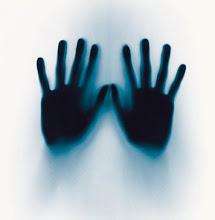Western Europe serves mainly as a region of destination for slaves from Russia, Africa, the Caribbean, and beyond. It is estimated that 700,000 humans are trafficked into Western Europe, destined for work in the brothels, bonded labor factories, or domestic servitude. However, it's always likely that these numbers are higher, as the nature of the industry requires discrepancy.
Here's a very recent article (December 2008) about brothel raids in Ireland:
Raids in Ireland
One especially interesting point surrounds the debate over the legalization of prostitution, which is argued to be an avenue of empowerment for sex workers and a way to ally law enforment with sex workers. Unfortunately, recent studies have found that foreigners (most of then African women) make up some 70 percent of people in Germany's sex trade, with the same pattern repeating in other Western European countries. Women are tricked into moving to Europe on promises of work or marriage (a typical case is that a trafficker will 'woo' a woman and invite her to travel abroad with him, where he sells her). Once sold into the industry, women are physically and emotionally threatened in order to prevent them from trying to escape, either by way of brutal beatings, threatening her family, or even by performing 'voodoo' ceremonies' (in most cultures people put a lot of faith on spirituality, and these ceremonies can be terrifying and damaging). All of this considered, Europe is struggling to find ways to legally and practically distinguish between legal, voluntary prostitution and forced prostitution. Even more importantly, they are working on liberating and rehabilitating ex-slaves in such a way that does not criminalize them for a life they did not choose.
More information on the link between prostitution and sex slavery:
Here is an interesting article that seems to treat the sex slave trade as a problem only Europe is dealing with, when in reality their problems are surely mirrored in the US, as proven by experience and facts: Trouble in Europe
Dreams of a better life often end in a brothel for the victims of human trafficking, with the people smugglers and slave traders who bring them there making a lucrative living from their misery. Protecting trafficking victims' human rights in destination countries before and after they get away is one of the topics the Organization for Security and Cooperation in Europe (OSCE) is looking at during a human trafficking conference beginning in Helsinki on Thursday. In the US as well, anti-trafficking intiative must be collaborative with initiatives to fight poverty, corruption, and exploitation.
Reccomendations for further reading:
Selling Olga: Stories of Human Trafficking by Louisa Waugh
"Following three years of in-depth research, award-winning author and journalist Louisa Waugh has produced a vivid, unflinching account of how this immoral commerce operates and why it thrives. Throughout Eastern Europe, a combination of war and poverty has led to women being sold in bars, confined, and coerced into sex work. And while Waugh focuses especially on one woman, Olga, who tells her own story in angry, heartbreaking detail, she also introduces us to many others across Europe including Nigerian women in Italy and migrants trapped in other forms of forced labor. She helps us understand why, in spite of global awareness, relentless anti-trafficking campaigns, and increasing numbers of imprisonments, this type of crime hasn’t disappeared…and why, in spite of everything, there is hope for change."
Further Information and Helpful Links:
Helping Victims of Human Trafficking
Further Information and Helpful Links:
Human trafficking- a problem Europe can't ignore
Slaves at the Heart of EuropeHelping Victims of Human Trafficking


No comments:
Post a Comment